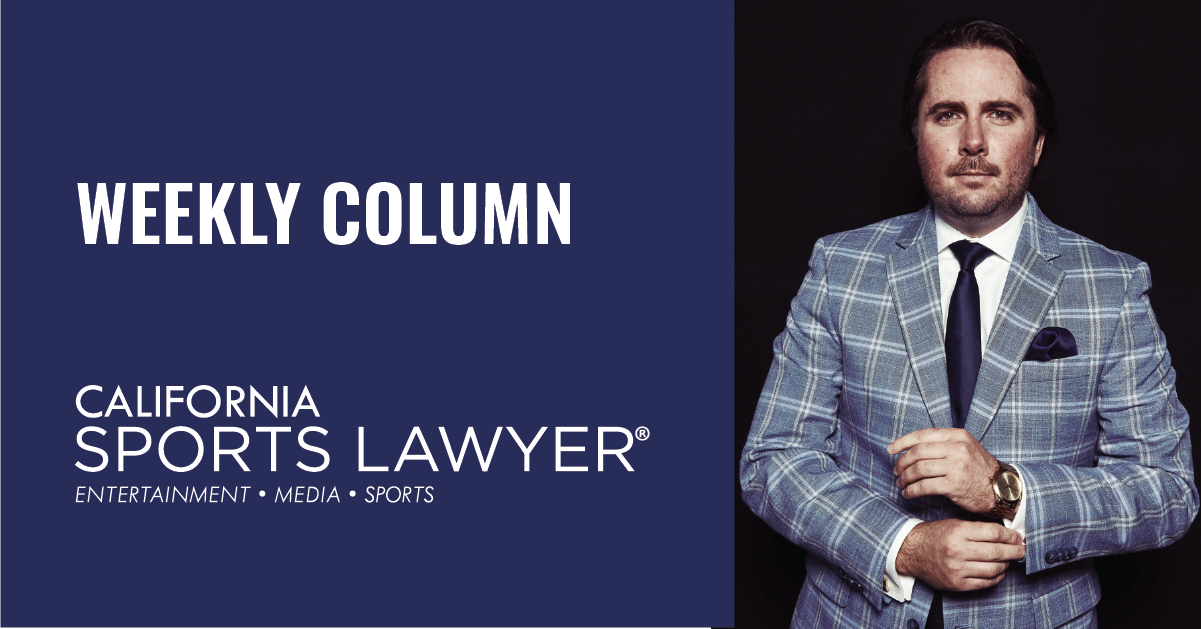In his capacity as a Columnist for California Sports Lawyer®, Founder and Managing Attorney Jeremy Evans has written a column about a federal district court decision in Tennessee that may send a ripple effect through the NCAA and college sports about NIL and pay-for-play.
You can read the full column below.
~
Where does the National Collegiate Athletics Association (“NCAA”) go from here? The NCAA’s fall from grace is not final nor is it entirely its fault. Like everything in life and business, there was bound to be changes. When social media was introduced giving athletes and everyone under the sun a platform to brand and share, it was inevitable that brands and celebrities would use the platform for monetization.
Name, image, and likeness (“NIL”) legislation that began in California and spread across the country was only a step in the process that was already leaning towards paying college athletes something beyond a scholarship, education, and access to a national audience on television before moving onto the professional ranks for a larger payday. The NCAA’s roots and more importantly mission are in amateurism and education not fundraising, dealmaking, or branding. Even though the NCAA controls March Madness and many of its trademarks, the money is distributed to the underlying schools and conferences, similar to how the College Football Playoff (a private entity) distributes its revenue from television contracts.
Unfortunately, the National Football League (“NFL”) and National Basketball Association (“NBA”) have never seriously put the resources into a proper minor league development system for graduating high school athletes like Major League Baseball, the National Hockey League, or ever soccer. NBA Commissioner Adam Silver was recently quoted as saying that NIL changes in college sports may lead to some tough decisions regarding the G-League as players can now make money in college leading to less talent going to the developmental league. The federal district judge in Tennessee decision will only exasperate the NIL issue in college sports for the immediate term (assuming there is an appeal and later high court decisions) because it removes limitations at least in Tennessee and Virginia for universities using NIL to recruit players. Other states may follow unless current legislation or university or conference rules prevent the practice of enticing players with cash while recruiting. However, Commissioner Silver’s comments miss the mark in that the one-and-done rule should be removed entirely to give athletes the choice to play where they want, not restricting them so that universities and the NBA can benefit from the one-year exercise in recruiting and scouting. The NFL should follow suit by utilizing the United Football League as a minor league system.
The NCAA’s future is in separation by level. Meaning, profit making sports are separated from non-revenue producing sports, Division 1 versus 2, etc., and by conference (e.g., Power Four/Five). Universities, unsurprisingly and unfortunately, are not profit-making endeavors or financial powerhouses. Universities are led by academics and the most successful financial ones are stewarded well. However, most universities utilize the revenue from men’s basketball and football to fund their sports programs and other on campus endeavors and research. Many universities will have a difficult time raising funds for NIL, splitting revenue, let alone compete with other Division 1 university athletics with pay-for-play (e.g., NIL without limitations).
All of the above, not to mention Title IX compliance (men’s versus women’s sports) and issues in employee classification with on-going litigation in mind. Not all is bad, however. With a capitalistic approach to NIL, it means athletes will get paid and more competition is always good for business, entrepreneurship, growth, invention, and ingenuity. In many industries, there are rules and regulators, but the professionals and participants police also each other and know who and where the good apples are in the business. The free press also plays a role in this.
Congress is not united on the employee-exemption issue for the NCAA let alone the states, conferences, universities, or college athletes. It is unlikely any federal legislation will be passed benefitting or regulating colleges or college athletes. It is likely however that the states will rush to pass legislation through university and conference lobbyists to streamline changes to NIL laws that allow for NIL being used as a recruiting tool. For better or worse, the marriage between NIL and recruiting will drive decision-making for athletes and universities. Collectives will become hedge funds or special purpose acquisition companies to bring the best athletes to the best universities for a price.
The NCAA was never meant to be in the profit-making business. Neither were the universities. All of that changed with television contracts. The proverbial ship has sailed for both the NCAA, universities, conferences, brands, and college athletes to make and share in NIL, both the process and revenue. Problems will persist and it is imaginable that some may regret the changes to the college game when the athletes are paid to play and become employees by nature of the payment, control over their schedule, and other factors. The wild west just got wilder.
~
About Jeremy M. Evans:
Jeremy M. Evans is the Chief Entrepreneur Officer, Founder & Managing Attorney at California Sports Lawyer®, representing entertainment, media, and sports clients in contractual, intellectual property, and dealmaking matters. Evans is an award-winning attorney and industry leader based in Los Angeles and Newport Beach, California. He can be reached at Jeremy@CSLlegal.com. www.CSLlegal.com.
Copyright © 2024. California Sports Lawyer®. All Rights Reserved.





